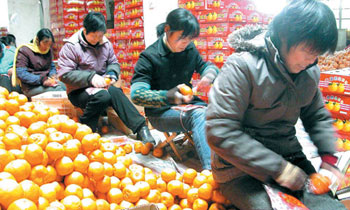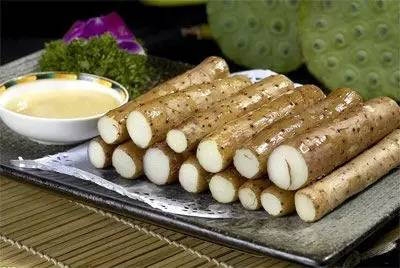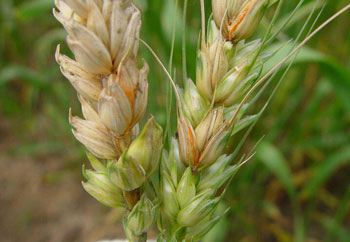Upgrade Quzhou three treasures citrus green pepper peach
Original title: variations of orange, pepper and peach
Quzhou Exploration of Agricultural supply-side structural Reform

In late spring, walking into the green waters and green mountains of western Zhejiang, you can feel the vitality of spring everywhere.
Promoting the supply-side structural reform of agriculture-- this new requirement written into the No. 1 document of the CPC Central Committee for the first time this year, is not only another baptism of the concept of agricultural development for cadres and masses in Quzhou, but also the best affirmation of their reform and exploration in recent years. The practice of agricultural supply-side structural reform in Quzhou has been on the way from the establishment of modern ecological circular agricultural development system to the integrated development of primary, secondary and tertiary industries, from green agriculture to ecological enrichment of the people.
Today, Quzhou is deepening the structural reform on the agricultural supply side with a further understanding, a more conscious attitude and a greater practice of the requirements of the No. 1 document of the Central Committee of the Standard.
Thoughts on supply-side Reform caused by a Citrus
Quzhou citrus is one of the leading agricultural industries with the largest planting area and the largest number of farmers.
Today, with the increasing diversification of planting industry, there are still 560000 orange farmers and 510000 mu of orange orchards in Quzhou. However, under the background of citrus overcapacity in the whole country, Quzhou citrus has appeared the problem of "difficult to sell" more and more frequently in recent years.
Local authorities estimate that the total output of citrus in Quzhou last year was 650000 tons. At present, only more than 70% of oranges are sold in the city, compared with nearly 90% at this time in previous years.
Fang Peilin, deputy director of the Bureau of Agriculture and Forestry in Kecheng District, Quzhou City, has dealt with citrus for more than 30 years. In his view, there are two main reasons why oranges are "difficult to sell":
First, the production and management system is backward and the orange orchard is fragmented. Take Kecheng as an example, there are only a few orange orchards of more than 50 mu in 180000 mu, thousands of families are scattered, and advanced production factors such as technology and facilities can not be gathered, which seriously restricts the improvement of production efficiency.
Second, the main body of production and management is weak, tends to be part-time and aging. In the past, there were mainly professional households, with energy and technology, and family income mainly came from oranges; now, farmers mainly earn money by going out to work, and citrus cultivation is generally part-time, often managed by the elderly and women left behind. the quality of citrus is not high due to extensive management.
What is different from previous years is that this year's oranges are not only "difficult to sell", but also natural disasters. The rare severe cold last winter froze nearly 80% of the citrus trees in the city.
The double crisis of unsalable and freezing injury exposed the deep-seated problems of the citrus industry, and also caused people in Quzhou to think about how to use the idea of supply-side structural reform to promote the transformation and upgrading of the citrus industry.
The Quzhou Municipal CPC Committee believes that it is necessary to eliminate excess capacity from the supply side, eliminate one batch, transform one batch, upgrade one batch, and transfer one batch, so as to improve the quality and efficiency of the citrus industry and continuously increase the income of farmers.
Quzhou regards this year as the "decisive year for the transformation and upgrading of the citrus industry," comprehensively mobilizes and implements the promotion plan, and strives to eliminate 50, 000 mu of "three low" orange orchards, transfer 50, 000 mu of orange orchards, set up greenhouse facilities to cultivate 50, 000 mu of orange orchards, transform 50, 000 mu of low-yield and inefficient orange orchards, and graft 5000 mu of oranges in a high position. All measures are directed at the supply side.
At present, Quzhou is actively mobilizing retail investors to transfer land, gather advanced factors of production, and improve quality and efficiency. In Kecheng District, thousands of acres of scattered orange orchards have recently been transferred to large households and cooperatives to upgrade and transform the orange orchards.
The practice of supply upgrading behind a green pepper
On the one hand, we often hear that it is difficult to sell agricultural products, while on the other hand, consumers complain that they "don't rest assured about what they eat." Grasping this general trend of consumption upgrading, Quzhou gives full play to its ecological advantages, relies on the creation of ecological circular agriculture leading areas, and promotes the upgrading of agricultural products supply.
Qujiang is the first batch of pilot counties to establish the quality and safety of agricultural products. In 2014, it began to establish eight systems of assured agriculture covering prenatal, mid-production and post-natal production, and took the lead in building a rest-assured agricultural brand of the whole region and the whole industry chain.
In Lianhua Town, Qujiang District, even an ordinary green pepper has a QR code "ID card" on the family farm of farmer Chen Jianhai. Whether the growth of the land environment is up to the standard, when to sow, when to use medicine and fertilizer, when to pick, pre-market test results. The whole process can be traced back, and consumers in direct sales stores can also view the real-time dynamics of the production base by video. "the wholesale price of other people's green peppers is 4 yuan per kilogram, but there is still a scramble for 6 yuan here." Chen Jianhai said.
In Qujiang, more than 1000 family farms have transferred more than 60% of the arable land in the region, driving farmers around to grow agricultural products at ease. No matter Zizania caduciflora, grapes, strawberries or tea, flowers, there is a unified standardized production mode in Qujiang, from the environment of producing areas to quality control, there are rules to follow and standards to follow.
In recent years, Qujiang has established and improved the four-level agricultural product inspection system of "province, city, district and township". Chen Jianhai said that on average, he has a provincial test here every month, and the city-level test is almost once a week, and there are even more at the district and town level.
In Qujiang, operators who have major incidents of quality and safety of agricultural products shall not enjoy relevant policy subsidies for life; those who fail two consecutive spot checks shall not enjoy policy subsidies within two years. In 2015, Qujiang tested nearly 40,000 batches of agricultural products, and the qualified rate of sampling inspection reached 99.3%.
Rest assured that agriculture will promote the upgrading of supply on the one hand and increase farmers' income on the other. At present, among the 260000 mu of land in Qujiang District, there are 62000 mu of "10,000 yuan fields", including 30, 000 mu of "20, 000 yuan fields". More than 600,000 mu of organic, green and pollution-free agricultural products have been built in Quzhou, and the qualified rate of agricultural products sampling inspection is stable at more than 99%.
"one after another" industrial chain of a peach
At the Peach Blossom Festival not long ago, Guoqiang Family Farm in Guoqiang Village, Longyou Lake Town, was very popular.
"thousands of tourists come in one weekend, and Nongjiale turns over seven or eight times a day." Li Guoqiang, the farmer, sighed that in the past, the edges of several streams in the village were full of breeding farms, not to mention the fact that the stream was black, and it smelled so bad in summer. Thanks to the "five-water co-governance", the seriously polluted farm was shut down, otherwise no one would have come to his Taoyuan.
Li Guoqiang has more than 200 mu of peach orchard. After picking and traveling, he has no worries about selling peaches at all, and even peach wine is sold out. So he turned kiwifruit grown on the farm into kiwifruit wine, and dried figs into dried figs. By processing this piece alone, Li Guoqiang made nearly 400000 yuan last year. Next, Lao Li also wants to engage in residential tourism.
Making up for the shortcomings of the ecological environment not only improves the living environment, but also provides a broad space and infinite possibility for creating a richer and efficient production and supply system.
In recent years, Quzhou has made up for the shortcomings of the ecological environment through "five-water co-governance" and "three reforms and one demolition", giving birth to more and more "agriculture + tourism", "agriculture + health" and other integrated primary, secondary and tertiary industries.
The city has made great efforts to close down seriously polluted small and medium-sized farms, reducing the raising of more than 4 million pigs, and turning the original pig shed into a mushroom shed, a vegetable shed and a medicine shed.
At present, there are nearly 5000 registered family farms in Quzhou, including creative agriculture and leisure and sightseeing family farms. (our reporter Deng Vladivostok, Weng Jie, Mao Guangtu, correspondent Zhu Xiaofen)
- Prev

Chinese yam growers are faced with difficult choices, who pays for the unsalable market?
Chinese yam growers are faced with difficult choices, who pays for the unsalable market?
- Next

The curative effect of the new product of wheat "cancer" is not clear.
The curative effect of the new product of wheat "cancer" is not clear.
Related
- A course of planting techniques and methods on how to grow carrots
- How to plant the latest tulips?
- Is it better to pick tea in the morning or in the afternoon? When is the best time for tea to be picked? what is the third or fifth tea?
- Launch Yuanxiao Happy combination Haocha + Tea Yuan healthy Taste
- Penghu Tourism "Fireworks 20 Parade with You"
- 2022 West Lake Happiness holds "Digital Revitalization Voucher" and draws iphone13 and laptop.
- Banqiao Fuzhou social houses are designed to change start-up combined with police elimination to create a safe and livable environment
- The convenient measure of "mechanical weeding" in Xinbei has been abused and the Agriculture Bureau has imposed heavy penalties on the illegal land consolidation.
- Changgeng University Joins Hands with Four Memory Factories to Rescue Memory Talent Shortage
- The list of Taiwan's top 100 MVP managers is listed by the Director-General of the Farmers' Association of Sanxia District.

